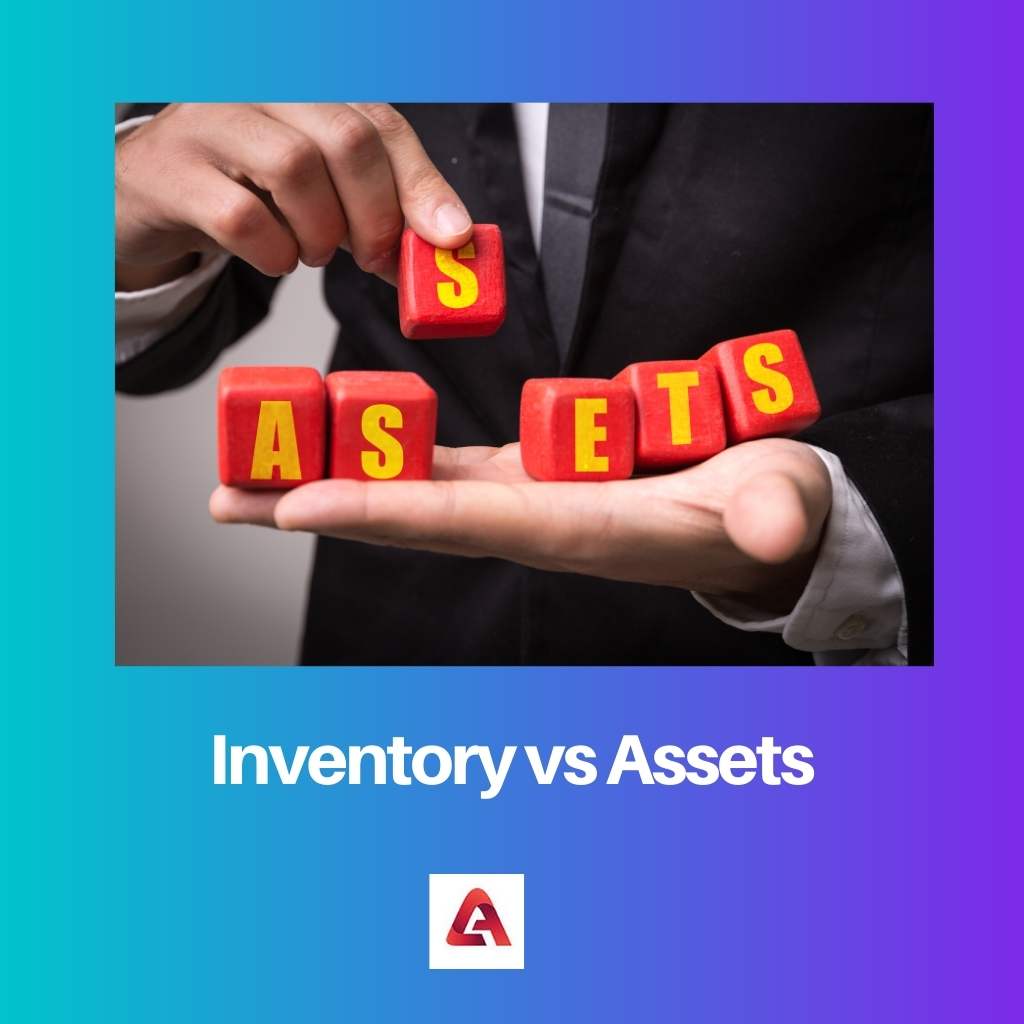Although Inventory and Assets may appear to be synonymous, they are two different phrases describing what a corporation or organization possesses.
Key Takeaways
- Inventory refers to the stock of finished goods, raw materials, and work in progress that a company has on hand, while assets refer to anything owned by the company that has value.
- The purpose of the inventory is to be sold or used to produce goods, while assets can be used for various purposes, such as generating revenue or serving as collateral.
- Inventory is reported on the balance sheet as a current asset, while assets are reported on the balance sheet as either current or non-current assets.
Inventory vs Assets
Inventory is the goods or materials that a business holds for the purpose of resale or production. These can include finished products, raw materials, work in progress, or supplies. Assets are resources that a business owns or controls and that have the potential to provide future economic benefits. They can include physical assets such as property, equipment, and inventory, as well as intangible assets.

Inventory refers to products, objects, and supplies that a business owns and intends to sell to make a profit. Any trade or production company’s inventory is a valuable asset.
An asset is a resource with an economic worth that is owned by a person, a company, or a nation. Short-term assets, fixed assets, business assets, and intangible assets are examples of asset classifications.
Comparison Table
| Parameters of Comparison | Inventory | Assets |
|---|---|---|
| Definition | The accounting of things, component elements, and manufactured goods that a corporation uses in manufacturing or sells are known as inventory. | A resource with the economic worth that a corporation or country possesses or manages with the hope of future gain is referred to as an asset. |
| Types | 4 Types | 2Types |
| Management | When inventory value is larger than expected, it has a negative influence on the business brand. | When a corporation’s asset value is high, it is regarded as advantageous to the company. |
| Value | The longer inventory is kept in the business, the less valuable it becomes. | Assets decline or amortize in value over the years which is useful to the company. |
| Benefits | Better inventory accuracy and reduced risk of overselling. | Reduces duplicate purchases and increases awareness of lost items. |
What is Inventory?
Inventory management is the process of keeping track of the things, parts, and raw materials that a business consumes or sells.
The examples show how various forms of inventory are used in retail and wholesale businesses like, cloth, threads, dyeing, and print designs are among the raw materials and parts used by a T-shirt manufacturer.
The four primary forms of Inventory:
Raw materials: When a product is finished, the basic elements, such as the oil needed to make shampoo, are indistinguishable from their previous state.
WIP (Work in Progress): Things in production, such as raw materials or components, labour, overhead, and even packing materials, are referred to as WIP inventory.
Finished Goods: Items that are ready for sale are known as finished goods.
Maintenance, Repair, and Operations (MRO) Goods: MRO is an inventory (in the form of supplies) that facilitates the production of a product or the operation of a business.
Some people, on the other hand, only recognize three categories of inventory, ignoring MRO.

What are Assets?
A resource with an economic worth that an individual, corporation, or country possesses or manages with the hope of future gain is referred to as an asset.
A piece of property and equipment purchased solely or largely for company usage is referenced as a business asset. Qualitative things, such as intellectual property, can also be included.
Types of Assets:
Tangible and intangible assets are the two categories of assets.
Tangible assets are assets that have a tangible shape, such as fixed assets and current assets, such as inventories. Non-tangible assets, on the other hand, are assets that do not have a physical form.

Main Differences Between Inventory and Assets
- inventory includes little work per item and directly prepares for sales, while Asset requires cleaning, inspection, and filling steps before preparation for another use.
- Inventory reduces the risk of overselling, whereas Assets reduce duplicate purchases.

- https://www.sciencedirect.com/science/article/pii/S2590188520300068
- https://search.proquest.com/openview/ad780d48266ff648056e00428a570e50/1?pq-origsite=gscholar&cbl=49243
Last Updated : 14 August, 2023

Chara Yadav holds MBA in Finance. Her goal is to simplify finance-related topics. She has worked in finance for about 25 years. She has held multiple finance and banking classes for business schools and communities. Read more at her bio page.

Very informative article, an eye-opener
Excellent contrasting explanation of the differences between inventory and assets!